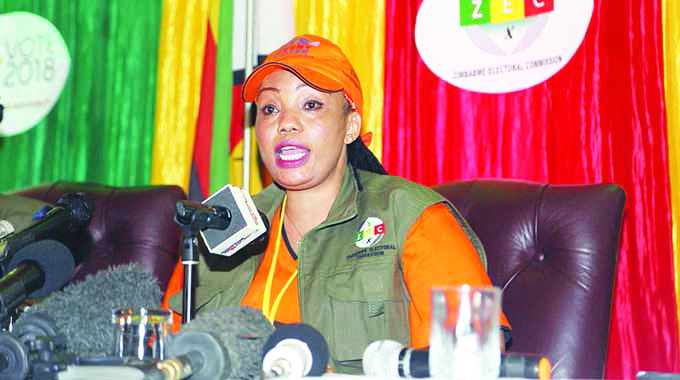Africa needs to harness all forms of off grid energy

Ruth Butaumocho
African Agenda
Two decades ago, use of solar energy to power commercial enterprises and equally big projects and ventures was very rare.
Off-grid energy such as solar was only found in remote parts of Africa, where it was difficult and considered expensive to put infrastructure for electricity.
With most African countries agitating for use of electricity – then deemed as modern and cheaper than any forms of energy – it was unimaginable to invest in other energy sources.
However, unrelenting power shortages faced by several countries in Africa have seen a surge in demand for off grid energy.
Power black outs, rationing, rolling shortages, and load shedding continue to hamper many countries’ development, including economic giants like South Africa and Nigeria.
Recently, public exams were interrupted in South Africa as that country’s power utility, Eskom, battled to contain the problem of power shortages.
In May this year, Eskom even admitted that such interruptions were likely to persist for the next five years, due to increased down-time of the rapidly ageing fleet of coal plants.
Delays in setting up new plans were also causing the power shortages.
Zimbabwe is also facing similar challenges and is enduring an unprecedented electricity crisis which has prompted up to 10 hours a day of load shedding, because the grid cannot generate enough energy to meet national demand or pay for adequate power imports, owing to foreign-currency shortages.
Regular faults at one of the country’s major grids at Hwange Power Station has not made the situation any better.
The Government is making frantic efforts to come up with a long term solution at the power station.
Neighbouring Zambia is also struggling to light up all its services that are powered by electricity.
All the insurmountable energy-related challenges that several African countries are facing call for investment in off-grid energy, which is a long term situation that the African continent would need to seriously look at.
But for all its current and anticipated electricity shortages, Africa should not struggle to look for alternative power sources because it is home to abundant renewable energy resources such as solar and hydropower, biomass, geothermal, and to a lesser extent wind power — that presents a major opportunity for investment.
The sun in most African countries is enough to generate off grid energy that can be used to power commercial, residential areas and other utilities.
The magic of solar is already being experienced in several African countries, which are beginning to reap the benefits of off grid sources of energy such as solar.
Solar energy is proving to be the real solution to the energy crisis in Africa.
And even though the electricity network provides much more energy than what solar can generate with current technology, it could take 20 or 30 years to connect hundreds of millions of people to the grid.
The growth of the off-grid energy sector is proving to be one of Africa’s social and economic success stories, transforming lives overnight by bringing power to low-income households and small businesses, often in remote areas with little prospect of a link to the national grid.
With the cheapest package going for US$50 for household use, it is now possible to come across an oasis of lights shimmering in the pitch-black night in a rural setting up, hundreds of kilometres away from the capital city.
From mere powering rural households, big corporate organisations and quite a number of production factories are now running on solar, partly as back up and as a long term solution in dealing with electricity shortages.
Despite all the competitive advantages, solar systems are not cheap, a development which calls for long term investments on solar farms, solar innovations and sustainable tooling in terms of resources and expertise for successful implementation.
Investments in solar farms, infrastructure development and expertise is a crucial step that governments need to prioritise to consolidate power on national grids.
Zimbabwe has already taken a robust approach to invest in solar and has to date issued several licences for solar farms, which are set to commence soon once all the logistics have been put in place.
Among the private players is RioZim which is already finalising the commencement of 178 megawatt (MW) solar development project in Zimbabwe, which once complete would be able to power some of its mines across the country.
The seriousness the Government is putting in the renewable energy should be supported with able players and stakeholders that are committed to light up the country.
To buttress green energy usage, in April 2021, the Government exempted duty on the importation of solar panels in a bid to promote environmentally friendly sources of energy.
The new measure was meant to motivate those interested in investing in solar energy.
Whatever they produce in five years, they will not have to pay taxes to the Government.
The move is supported by other measures taken by the Government in the Second Republic; notably the duty-free import of solar energy production equipment.
Zimbabwe has huge and diverse renewable energy potential. The country’s sustainable energy portfolio could include solar, hydro, biomass, and, to a limited extent, wind and geothermal, as previously cited.
The Government put forward a National Renewable Energy Policy in 2019, which aims to have 16,5 percent of the total generation capacity (excluding large hydro), from renewable sources by 2025.
This is expected to increase to 26,5 percent by 2030.
The country has huge and diverse renewable energy potential, which the country and Africa at large should be able to harness to power its people.
On a continental scale, there is now a compelling need for Africa to have clean energy to cater for population growth, increasing urbanisation, industrialization and trade.
Feedback:[email protected],










Comments